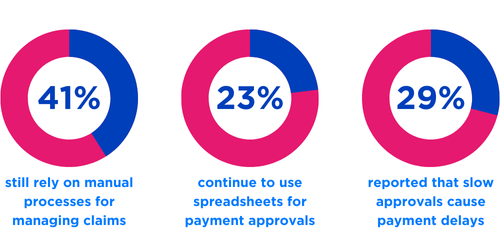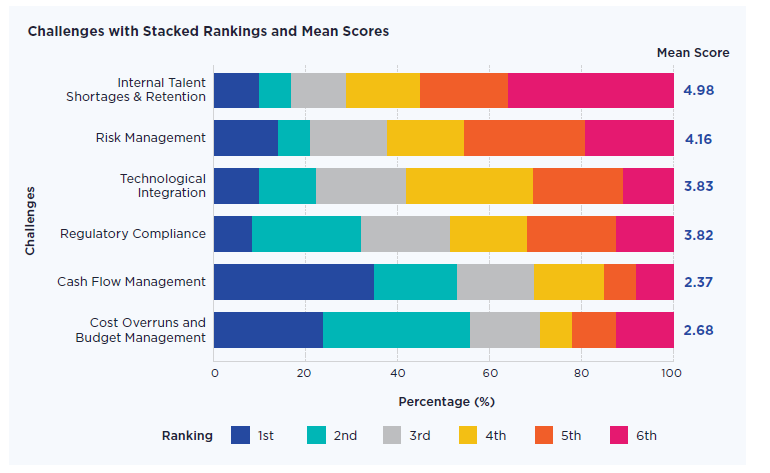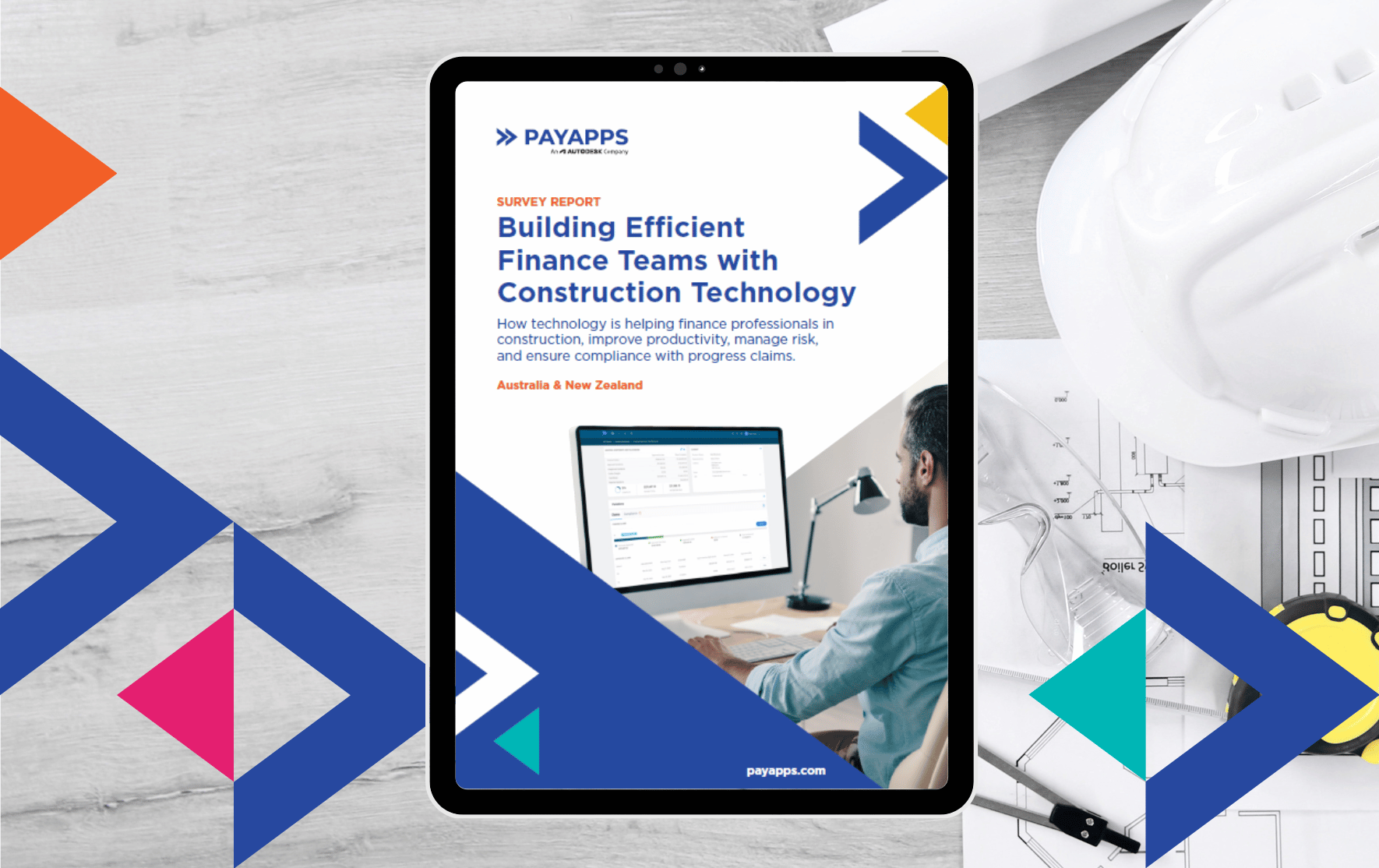Finance teams in construction are facing mounting pressure to deliver more with less. According to our recent report, which gathered insights from 125+ finance professionals across the region, the integration of financial and accounting software, and ERP systems have emerged as one of the top three challenges facing construction finance teams.
The Integration Imperative
The survey reveals a striking reality: 41% of finance teams still rely on manual processes for managing progress claims, while 23% continue using spreadsheets for payment approvals. This dependence on disconnected systems isn’t just inefficient—it’s becoming unsustainable as regulatory requirements grow more complex.

For finance professionals managing multiple projects, the lack of integration between accounting or financial software and with other systems creates significant bottlenecks. In fact, 29% of respondents reported that internal delays and slow approvals frequently cause payment delays, highlighting the urgent need for seamless system integration.
Compliance in a Complex Regulatory Environment
One of the most compelling arguments for systems integration is its critical role in maintaining compliance with Security of Payment Act (SOPA) and Construction Contracts Act (CCA) requirements. The survey found that 53% of finance professionals believe it is difficult to meet their deadlines when using fragmented, manual systems.
More concerningly, 26% of respondents reported that they rarely or never have visibility into when payments are due to comply with SOPA obligations. This lack of visibility creates significant compliance risks that could result in penalties or disputes.
Future-Proofing Finance Operations
Looking ahead, the integration of financial systems isn’t just about efficiency—it’s about building resilience. The survey revealed that finance teams using integrated systems are significantly better positioned to:
- Reduce time spent on manual data entry (31% spend just 0-1 hours weekly on payment processing, compared to 33% of non-integrated teams spending 10+ hours)
- Improve compliance management (81% find it easier to meet payment deadlines)
- Enhanced real-time visibility across projects and stakeholders
The Talent Connection
Perhaps most significantly, the survey identified talent shortages and retention as the biggest challenge facing finance teams (ranked highest with a mean score of 4.98 out of 6). Modern professionals expect access to integrated, efficient systems that allow them to focus on strategic work rather than manual data entry.

Looking Ahead: The Future of Construction Finance
As we look to the future, several trends are becoming clear:
- Cloud-based Integration: Finance teams are increasingly moving towards cloud-based solutions that offer seamless integration with construction ERP, project management, accounting and financial software.
- Real-time Visibility: The demand for instant access to financial data across projects will continue to grow.
- Automated Compliance: Systems that automatically track and manage regulatory requirements will become standard.
The Path Forward
The message from our research survey is clear: integration of financial systems is no longer optional for construction finance teams. With 54% of survey respondents identifying automated payment deadline reminders as their top desired feature, and 51% prioritising digital approval processes, the need for systems integration is evident.
Finance leaders must evaluate their current systems and consider how integrated solutions, such as Payapps, can help address their most pressing challenges. The cost of maintaining disconnected systems—in terms of efficiency, compliance risk, and talent retention—is simply too high to ignore.
For a deeper dive into these insights and more findings about the future of finance professionals in construction, download the complete report.







